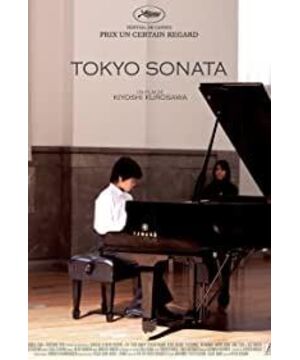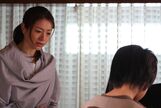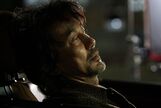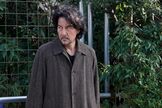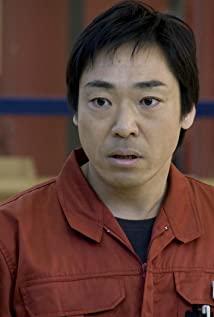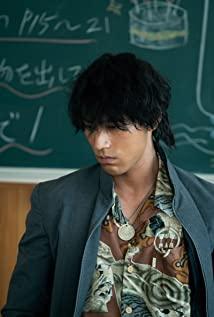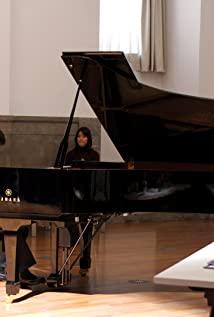Just as the economic crisis shook people's daily lives, it also shook the film "Tokyo Sonata." The film starts off the beaten track, and as the plot develops, the story gradually enters an atmosphere full of comedy, horror and sublime elements. Although the film, like many sonatas, has three movements, the usual three-act structure does not hold here.
The film begins with a familiar setting: a family trapped in their own lives, with everyone estranged from each other. Long Ping is a white-collar worker engaged in management. His wife, Megumi, is a housewife who cleans, sews and prepares meals. His eldest son Gui and youngest son Kenji were full of unhappiness in their lives, but fortunately they did not go astray. Kenji got into trouble at school recently: the teacher accused him of handing out cartoons to classmates in class, while Kenji defiantly pointed out that the teacher was reading pornographic magazines on the subway. This phenomenon is common in Japan, no big deal, but the hypocrisy in it is the problem.
At the beginning of the film, Long Ping was fired. He went home and gave his wife this month's salary without saying a word. He was an assertive father and was often full of anger. Feeling that there was no way out in Japan, Gui announced that he was going to join the US military in order to seek US citizenship. But my father didn't allow it.
Fearing the shame of admitting that he was unemployed, Yong Pyong pretended to go to "work" every day, wandering the lifeless concrete floor with other unemployed people. There was a relief station here, and the wife saw him from a distance and knew the truth, but said nothing. The young Kenji often skipped school, spending school meals on piano lessons. His father broke with the Japanese tradition of encouraging children to learn by forbidding Kenji to learn the piano. Why? Perhaps he feared that his family status would be threatened.
On the surface, this seems to be a traditional family drama. The relationship tension is always present and suppressed, but if the truth is revealed, it will inevitably mean that there will be a tragedy or there will be a solution. But that's not what director Kiyoshi Kurosawa, a horror master known for his virtuosity, is up to. In the first half of the scene, he almost misleads us by framing the family dinner in a calm and orderly composition. We thought we knew where the Tokyo Sonata was going, but we were wrong.
Of course, that's not to say it's going to turn into a horror movie. It simply shows how a broken life has been torn apart piece by piece by the financial crisis. Unemployment was the catalyst—a reality that everyone kept silent, and everyone became angrier because of it. All performances have a perfect pitch, and the story of the younger son firmly grasps the hearts of the audience, just like the little hero in Truffaut's "Four Hundred Blows".
I shouldn't reveal where the movie is going. But notice how Kurosawa (who is not related to the great Kurosawa) allowed the train to go off track. The intervention of dramatic events means that once the ordinary life is interrupted, it cannot be repaired. The intrusion of a completely unexpected character in this film breaks the original convention, leading to the character's instinctive resignation to the new state of affairs, with tragic consequences for the previously seemingly arbitrary events.
At the same time, Kurosawa observed the predicament and suffering of individuals under the tide of unemployment in Japan. Like the United States, Japan has also been affected by cheap labor from abroad. (The day China and India start outsourcing will be a historic turning point.) Long Ping waited in line at an employment agency, and he got a job as a cleaner in a shopping mall. His humiliation was even greater when all the cleaners had to change their overalls in full view.
Then the film found another form of catharsis. Watching it unfold step by step, we are amazed at its beauty. In a medium and long shot, accompanied by a movement, no one moves, only an incredible atmosphere. Will this be a happy ending? It can't be expressed more concisely, but this is just the beginning. The old shell has been removed, the old tape has been emptied, and freedom has been asserted. What the future holds, nothing is certain.
A sonata is a type of classical music, which is the interweaving of two musical ideas. The first chapters are responsible for the introduction, and as the chapter progresses, they take shape in two forms of progressive exploration. The end doesn't mean the end of things, rather, we need to go back in time to understand what we actually know. The theme of the film is the father and his family. In the end, they fell into the tension at the beginning again, but once the mask of hypocrisy is taken off, the protective cover of human nature no longer exists, then how will life continue?
View more about Tokyo Sonata reviews


